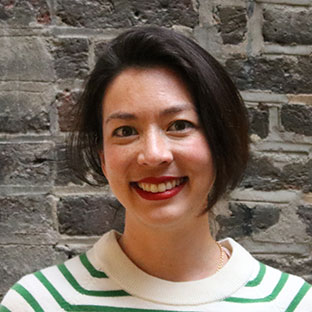In three online sessions, Fellows met to share stories of leading social action in their communities, ask each other questions, and explore best practices for RSA Networks and Fellowship Projects as part of our ‘Behind the Scenes’ series. Here are some of our learnings.
The sessions began with a mosaic of simultaneously shifting videos, a tiny glowing diorama into different worlds. In each little square a Fellow adjusts the height of their desk chairs and the tilt of laptop screens, settles in with steaming mugs of tea, sometimes juggling a young child on a knee, or hunches over their phone in a buzzing public space. Then the discussion begins. The flurry of ideas and experiences are shared and built upon together. Here are some of the things we explored during the three sessions.
Diversity of motivations and motivations of diversity
For some Fellows, the RSA offers the flexibility and freedom for pioneering and innovation. Some want to catalyse action in their local areas, driving forth changes with potential for significant impact. Others want to collaborate on specific local or thematic issues. The most common motivation by far was the desire to bring people together that might not ordinarily speak to each other. Fellows want to break down silos and collaborate to tackle pressing issues.
While diversity has come naturally for some groups, for others it is an aspiration still struggling to become a reality. To benefit from the talent and energies of people of different ages, genders, ethnicities, family statuses, professions and more, Fellows are listening closely to the barriers people face in participating. Networks are then experimenting with event formats, locations, times, ‘feel’, to overcome those barriers. Some found that simply changing the choice of venue results in dramatic differences in who attends and feels welcome, whereas in other places this had little effect.
Balancing Fellows’ expectations in Networks
“It’s good to hear that Networks are discussing how to improve facilitation of connection and engagement.”
Fellows attend events for many reasons: curiosity around meeting others; desire for exposure to different ideas; or wanting to take practical action. Network Leads are challenged with designing programmes of activity which accommodates this diversity of interests, while also sustaining their own motivations.
More Fellows are showing up wanting practical and action-oriented activity, expressly less interested in “talking shops” and “pure networking”. However, many of the stories of memorable “RSA moments” are about serendipitous meetings which open new possibilities and foster meaningful relationships.
Networks work in idiosyncratic ways. Some set out well-defined roles to helped Fellows see the progress and impact of their contributions, with leaders ensuring accountability. Others appreciate fluid roles, keeping things interesting and non-hierarchical. New possibilities are constantly emerging with many Networks exploring new ways to collaborate.
Bigger isn’t necessarily better in Place-based Networks
While it may appear logical to start with a large group of Fellows in bigger towns and cities, very active groups have developed hyper-locally. Small groups found themselves met with great enthusiasm from their communities, and appreciated for the opportunity to meet others that they might not normally meet. At this smaller scale, it was easier to identify needs or gaps where they could make a real and relevant contribution.
This also meant Fellows could see the impact and longevity of changes resulting from their efforts. Imagine walking past a place or project you helped get off the ground and feeling the flush of joy having contributed to it. Local changemaking can be a great balance in addition to larger contributions our Fellows make to complex, global challenges.
Taking focused Fellowship Projects to the next level
Fellow-led Projects excitingly tackle a breadth of topics and tend to run differently to Networks. Offering practical, action-oriented ways for Fellows to drive change in their communities, projects have great strengths but also face unique challenges.
Successful projects may develop blueprints for others, however, adapting models for new contexts can prove difficult. This is particularly evident when models are lifted from places with very different policy and funding environments.
As projects become more focused in scope, it can be increasingly difficult to locate the specific resources needed, such as technical expertise.
Approaches to sustainability
“Heroes are almost by definition not scalable. They may only just be sustainable.”
Concerns around sustainability and succession planning seemed widely shared. It can be challenging to find others who are willing to commit the time and energy needed to sustain the work.
While organisational strategies such as setting collective and individual goals, understanding clear roles and responsibilities, purposeful communication and giving recognition were raised, other Fellows questioned whether sustainability was necessarily the right approach. Perhaps some networks and projects will come to a natural end, creating space for new ones to begin.
What’s next?
“There’s a certain sense of change running through the RSA at the moment.”
We hope that these relationships will endure beyond the series and are keen to continue supporting the RSA’s community of practice to emerge.
Building on this series, we’re coordinating a Fellowship Day in Rawthmells Coffeehouse on 25 March and are seeking your ideas and participation in co-designing the event. This open, all-day event will be geared towards Fellows leading RSA Networks, with wider relevance to Fellows interested in running RSA activity. In the open, collaborative spirit of Rawthmells Coffeehouse, all are welcome and you will be able to drop in for some or all of the day.
What would you like to experience/see/get out of a Fellowship Day? Is there anything you’d be interested to offer or facilitate? Please send your thoughts and ideas to Laura.House@rsa.org.uk.
Related articles
-
Working towards an improved Fellowship experience
Lucy Griffiths FRSA
The Fellowship Roadmap project commenced in March 2020 with the aim aim of better understanding the RSA Fellowship’s needs.
-
Announcing the Covid-19 Catalyst Award funded projects
Kimberley Staines
20 impactful projects run by RSA Fellows and funded by the RSA to respond to the effects of Covid-19.
-
Covid-19 and good work: stories from Catalyst grant winners
Emma Morgante
Winners of an RSA grant to deal with the impact of Covid-19 on the world of work.




Join the discussion
Comments
Please login to post a comment or reply
Don't have an account? Click here to register.
A most excellent initiative, if you could keep the openness to the wider Fellowship by offering an interactive Zoom session during the event, I would be very pleased to share the experiences we have been pioneering here in Scotland and our Links to Ireland.